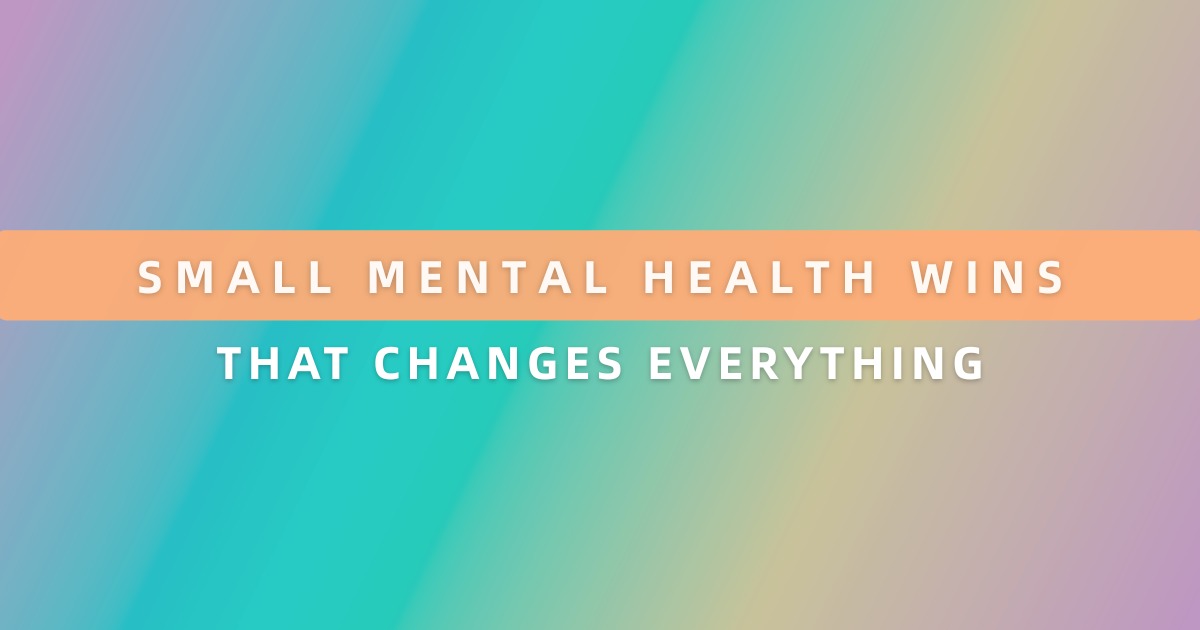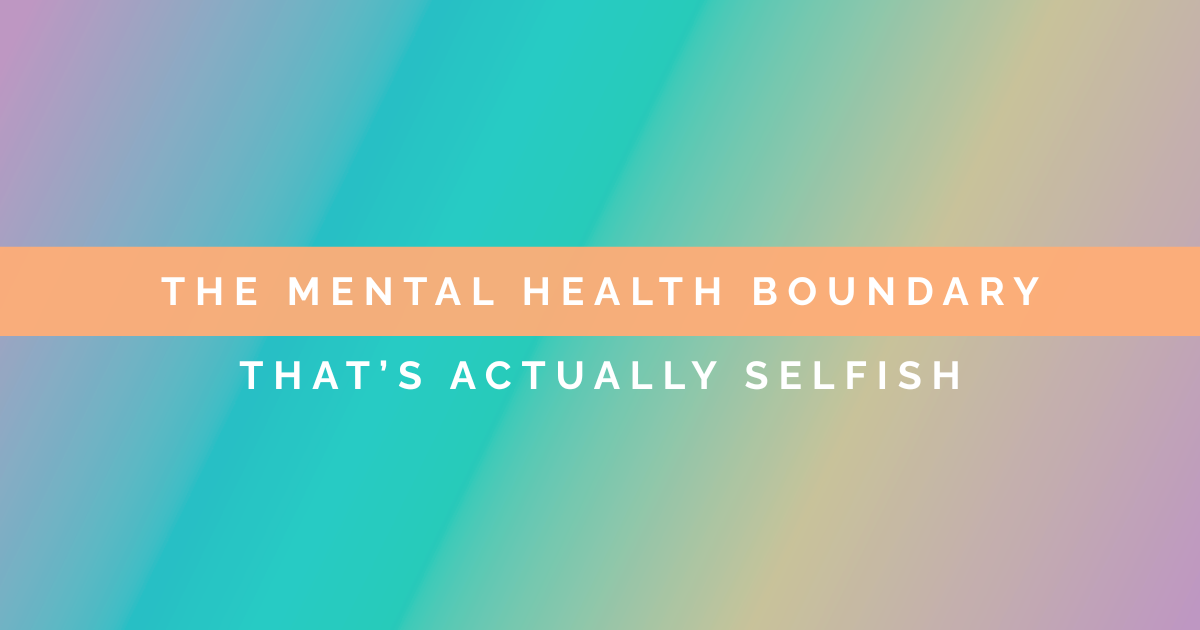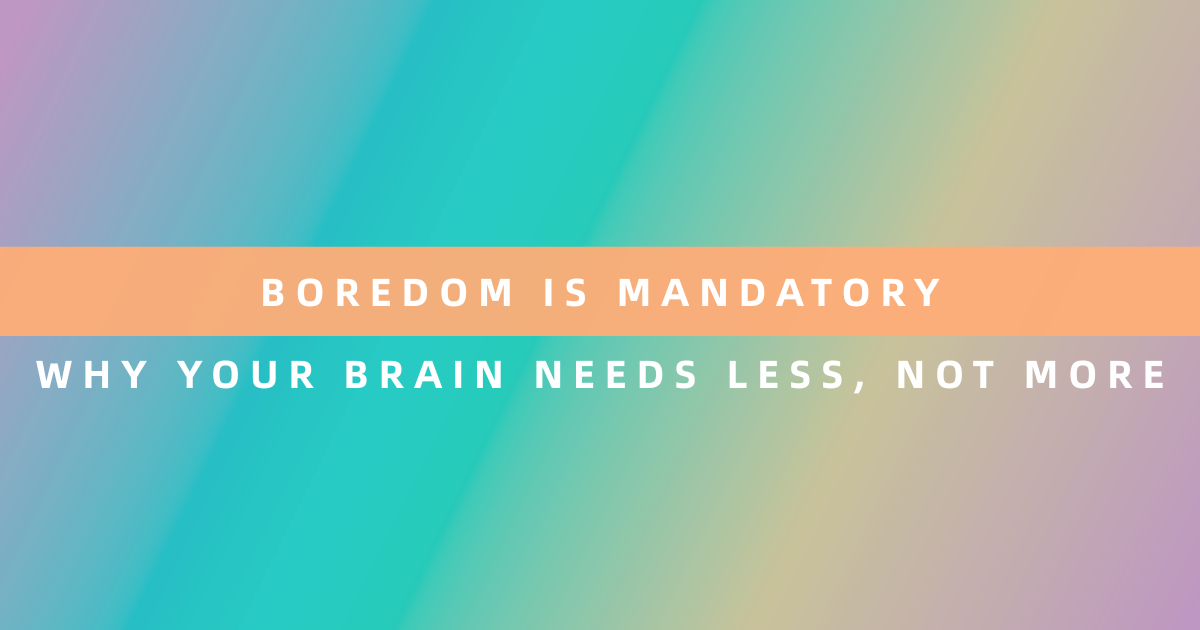What if the secret to better mental health wasn’t found in dramatic life overhauls or expensive retreats, but in something as simple as making your bed each morning? Or sending that text you’ve been putting off? Or taking three deep breaths before checking your phone?
These seemingly insignificant moments, these small mental health wins, often hold more power than we realize. They’re the building blocks of lasting change, the quiet revolutionaries that transform our days and, eventually, our lives.
Why Small Wins Matter More Than Grand Gestures
We live in a world that celebrates dramatic transformations, overnight success, and complete reinvention. But real mental health progress rarely works that way. Instead, it happens in the quiet moments when someone chooses to drink water instead of reaching for another cup of coffee. It unfolds when someone sets a phone reminder to take medication. It grows when someone decides to walk around the block instead of scrolling social media for another hour.
These small wins matter because they’re achievable. When depression makes getting out of bed feel impossible, the goal isn’t to run a marathon. It’s to sit up. Then stand. Then make it to the kitchen. Each tiny step forward is a victory worth celebrating.
The Psychology of Progress
Our brains are wired to respond to achievement. Every time we accomplish something, no matter how small, our reward system activates. This releases dopamine, which not only makes us feel good but also motivates us to seek more wins. By focusing on small, achievable goals, we create a positive feedback loop that builds momentum over time.
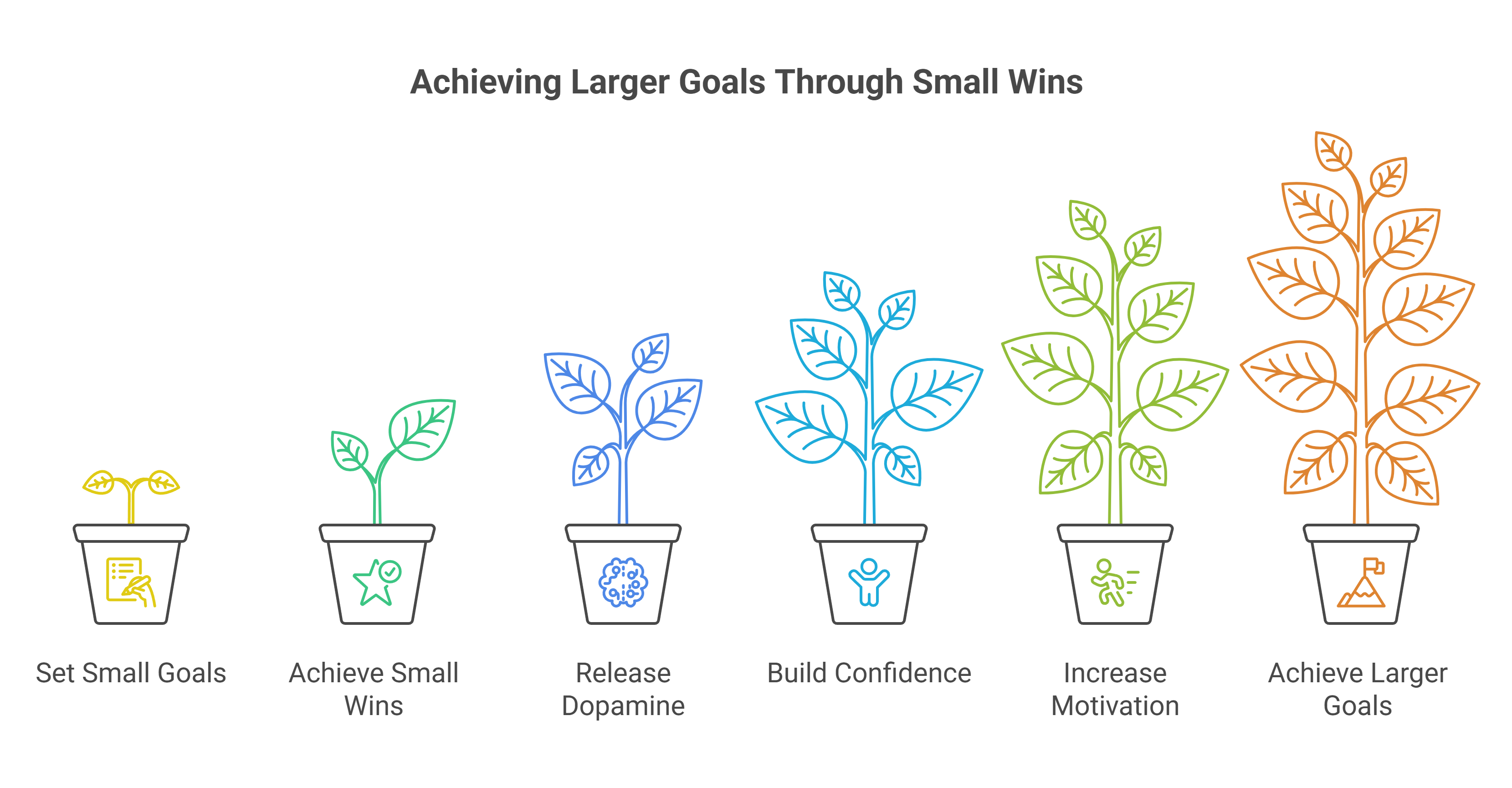
Research shows that people who track small wins report higher levels of motivation and life satisfaction. They’re also more likely to achieve their larger goals because they’ve built confidence through consistent small successes.
Daily Wins That Work
Mental health wins don’t need to be complicated or time-consuming. Here are practical victories anyone can achieve:
Morning Wins
- – Opening curtains to let in natural light
- – Drinking a glass of water before coffee
- – Making your bed (even if imperfectly)
- – Taking five deep breaths before starting the day
- – Eating something, anything, for breakfast
- – Sending one “good morning” text to someone you care about
Workday Wins
- – Taking a proper lunch break away from your desk
- – Setting boundaries by not checking emails after hours
- – Completing one task you’ve been avoiding
- – Asking for help when you need it
- – Taking a two-minute break every hour
- – Saying “no” to one unnecessary commitment
Evening Wins
- – Putting your phone down 30 minutes before bed
- – Writing down three things that went well today
- – Taking a shower or washing your face
- – Preparing clothes for tomorrow
- – Reading one page of a book
- – Turning off news notifications
Weekend Wins
- – Spending 10 minutes in nature
- – Calling a friend or family member
- – Trying one new recipe
- – Decluttering one small area
- – Taking a different route on a familiar walk
- – Allowing yourself to rest without guilt
Building Your Personal Win Streak
Creating a sustainable practice of small wins requires intention but not perfection. Start by choosing one or two wins that feel genuinely achievable. Not what you think you should do, but what you can do given your current circumstances.
The Two Minute Rule
If something takes less than two minutes, do it now. This simple rule helps bypass the procrastination that often accompanies depression and anxiety. Reply to that text. Water the plant. Put dirty dishes in the sink. These micro actions add up to macro changes.
Track Your Victories
Keep a simple record of your daily wins. This could be checkmarks in a notebook, notes on your phone, or using a habit-tracking app. The act of recording wins makes them more real and provides visual proof of your progress on difficult days.
Adjust Your Definition of Success
Some days, a win might be taking a shower. Other days, it might be completing a work project. Let your definition of success flex with your capacity. Mental health isn’t linear, and neither is progress.
The Science Behind Small Changes
Neuroscience reveals why small wins create lasting change. Each time we repeat a behavior, we strengthen neural pathways in our brain. Small, consistent actions rewire our brains over time, making positive behaviors feel more natural and automatic.
This process, known as neuroplasticity, means that our brains can form new connections throughout our lives. By focusing on small wins, we’re essentially training our brains to default to healthier patterns. The key is consistency over intensity.
The Compound Effect
Just as compound interest grows wealth over time, compound habits grow mental wellness. A 1% improvement each day might seem insignificant, but over a year, it represents a 37-fold increase. Small wins don’t just add up; they multiply.
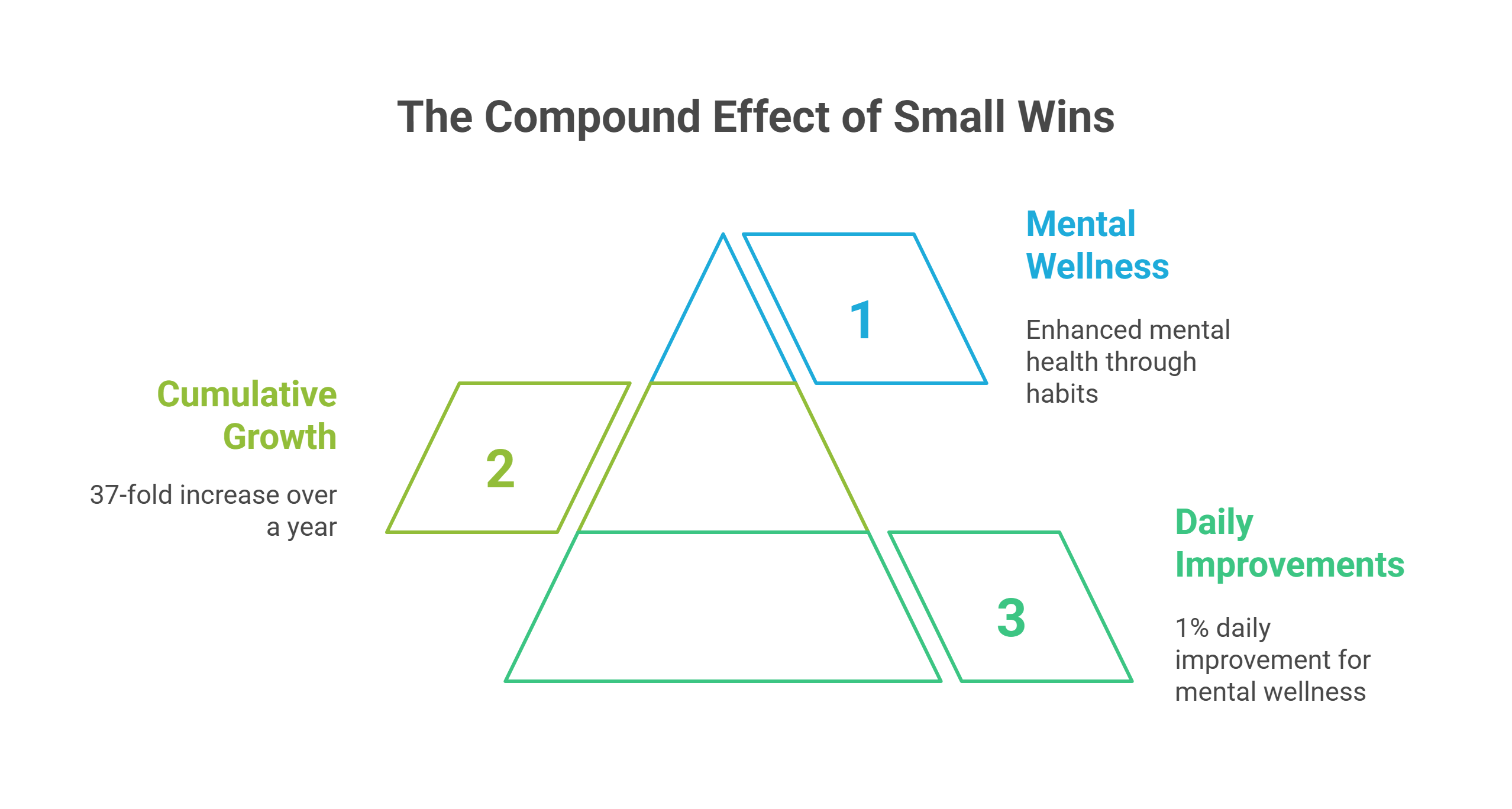
Consider someone who starts by drinking one extra glass of water daily. This small win might lead to noticing they feel more energized, which might inspire a five-minute walk, which might lead to better sleep, which might improve mood, which might enhance relationships. One small win creates a cascade of positive changes.
Turning Wins Into Lasting Habits
The goal isn’t to accumulate wins indefinitely but to transform them into sustainable habits that support mental health without constant effort.
Stack Your Wins
Habit stacking involves linking a new behavior to an existing routine. After you pour your morning coffee, take three deep breaths. After you brush your teeth, think of one thing you’re grateful for. By anchoring new wins to established habits, they become easier to maintain.
Create Environmental Cues
Make wins easier by adjusting your environment. Keep a water bottle on your desk. Place your journal on your pillow. Set out workout clothes the night before. Remove friction from positive choices and add friction to negative ones.
Find Your Rhythm
Some wins work better at certain times of day. Pay attention to your natural energy patterns and schedule wins accordingly. If mornings are difficult, don’t force yourself to meditate in the morning. Find what works with your rhythm, not against it.
When Small Steps Lead to Big Breakthroughs
The magic of small wins lies not in any individual action but in their cumulative effect. People often report that after weeks or months of small wins, they suddenly realize they’re in a completely different mental space than where they started.
One person might start by simply opening their curtains each morning. Months later, they realize they’re exercising regularly, maintaining social connections, and managing stress effectively. They can’t pinpoint exactly when things shifted because change happened gradually through countless small victories.
Celebrating Without Minimizing
Acknowledging small wins doesn’t mean settling for less or avoiding bigger goals. It means recognizing that sustainable change happens incrementally. Every person managing their mental health through medication, therapy, and daily practices started with a single small step.
The Ripple Effect
Small wins don’t just change us; they change how we interact with the world. When we feel slightly better, we tend to be kinder to others. When we’re kinder to others, our relationships improve. When our relationships improve, our support system strengthens. The ripple effects of small wins extend far beyond our individual experience.
Mental health transformation doesn’t require perfection, dramatic gestures, or complete life overhauls. It requires showing up, however imperfectly, and claiming the small victories available each day. Whether that’s drinking an extra glass of water, taking a five-minute walk, or simply getting out of bed on a difficult morning, every win counts.
These small victories aren’t just stepping stones to bigger achievements; they’re achievements in themselves. They’re proof of resilience, evidence of self-care, and building blocks of a life that feels more manageable and meaningful.
Start where you are. Use what you have. Do what you can. Your small wins matter more than you know.
Ready to start tracking your mental health wins and seeing how small changes add up? Discover how Theryo’s daily check-ins and progress tracking can help you celebrate every victory on your wellness journey. Every step forward deserves recognition.
Frequently Asked Questions
What counts as a small mental health win?
Any positive action that supports your well-being counts as a win. This includes basic self-care like brushing your teeth, productive actions like responding to an email, social connections like texting a friend, or mindfulness moments like taking deep breaths. The key is recognizing and celebrating these achievements, no matter how small they may seem.
How do I stay motivated when progress feels slow?
Focus on consistency over speed. Track your small wins visually through a journal or app to see your progress over time. Remember that mental health improvement isn’t linear. Some days will be harder than others, and that’s normal. Celebrate showing up, even imperfectly.
What if I can’t manage even small wins some days?
On difficult days, make your wins even smaller. If showering feels impossible, washing your face counts. If cooking is too much, eating a piece of fruit is a win. Adjust your expectations to match your capacity, and remember that simply surviving a hard day is an achievement.
How long before small wins create noticeable change?
Many people notice subtle improvements within a few weeks of consistent small wins. However, significant changes often become apparent after 60 to 90 days. The timeline varies for everyone, and progress might be noticed by others before you recognize it yourself.
Should I share my small wins with others?
Sharing wins can increase accountability and encourage, but it’s entirely personal. Some people benefit from sharing with trusted friends or support groups, while others prefer private tracking. Do what feels supportive for you.
How many small wins should I aim for each day?
Start with one or two consistent wins rather than overwhelming yourself with multiple goals. Once these become habitual, you can gradually add more. Quality and consistency matter more than quantity.
What’s the difference between small wins and avoiding bigger issues?
Small wins build capacity to address larger challenges. They’re not about avoiding problems but building strength and confidence to face them. As you accumulate wins, you often find yourself naturally ready to tackle bigger issues.
Can small wins replace therapy or medication?
Small wins complement but don’t replace professional mental health treatment. They’re valuable tools that can enhance the effectiveness of therapy and medication. Always consult with healthcare providers about your treatment plan.
How do I choose which small wins to focus on?
Choose wins that feel achievable and meaningful to you. Consider areas where you want improvement: physical health, relationships, productivity, or self-care. Start with the easiest wins to build momentum, then gradually expand.
What if my family or friends don’t understand why I’m celebrating “small” things?
Not everyone understands that what seems small to them might be significant for someone managing mental health challenges. You don’t need others to validate your wins. If possible, find supportive communities that understand the importance of celebrating all victories.
How do I track small wins without it feeling like another chore?
Keep tracking simple. Use whatever method feels easiest: checkmarks in a planner, notes in your phone, or a basic habit tracking app. The goal is awareness, not perfection. Even mental notes count as tracking.
Can focusing on small wins become toxic positivity?
Celebrating small wins isn’t about forcing positivity or ignoring real struggles. It’s about acknowledging efforts and progress while still honoring difficult emotions and experiences. You can recognize wins while also acknowledging that things are hard.


